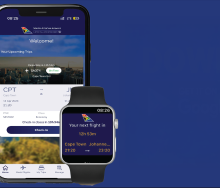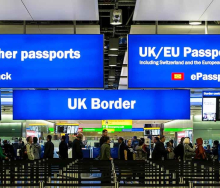TRAVEL agents can
be held liable for any
damages if they fail
to advise their clients of
the risks when travelling
to a country experiencing
political unrest, security
issues or whether it is prone
to natural disasters.
This, says Gareth Cremen
of Ramsay Webber, is in line
the Consumer Protection
Act. He says travel agents
have a misconception that
they can’t be held liable as
they are the intermediary
but as the experts in
travel they are expected to
advise their clients on the
degree of risk involved in
travelling to the destination
they are selling. “Travel
agents don’t understand
the consequences of not
complying,” says Gareth.
He believes this is due
to the inefficiency of the
Consumer Commission
since its launch as well
as the public not being
aware of their rights. “The
CPA is not being used to
its full potential so travel
agents are continuing with
business as usual,” he
adds. But he believes this
is changing and that South
Africans are becoming more
litigious.
He advises that
disclaimers should be used
if a client is visiting an
area prone to cyclones, for
example, at the time that
they are travelling. An agent
can state that they cannot
vouch for the weather but
they should make the client
aware of the potential for
adverse weather conditions.
In the case of an area
that has experienced
political unrest, such as the
Ukraine or Thailand, an
agent has an obligation
to identify the risk
and explain to their
client that there have
been incidents that
affected tourists.
Travel agents
will need to show
that they took all
reasonable steps
to make their client
aware of the risks if it
went to court. He says
while an agent cannot
foresee everything, if
something does happen
before the client travels, it
is the agent’s obligation to
contact the client and offer
them the opportunity to
cancel or delay their travel
plans. Gareth adds that
they should also encourage
their client to take out
travel insurance.
Simmy Micheli, manager
of sales and marketing at
TIC, says it is not necessary
to purchase additional
insurance when travelling
to a high-risk destination.
“Insurance policies are
pretty much standard,
regardless of what is
happening anywhere in the
world,” she says.
Simmy adds that the
benefit that does change in
the event of civil unrest, war
or a strike is the
cancellation curtailment
cover. “The heartbeat of
this benefit is to cover your
losses if you cannot travel or
need to cut short your travel
because of an unexpected
medical condition.” She
adds that TIC covers five
other perils that might lead
to a trip cancellation or
curtailment, including the
theft of travel documents,
retrenchment, a traumatic
event before the traveller’s
departure, accidental loss
to home of R100 000 or
more due to a storm, fire or
burglary and the cancellation
of the flight ticket within
36 hours of departure by
the airline due to strike,
riot or civil commotion.
This is provided that it was
‘unforeseen’, i.e. there was
no public warning 14 days
prior to the purchase of the
policy.
“Prior to the drama in
Egypt [for example] travellers
had the above benefit as
indicated but since then
there is no cover for this
specific benefit to travel to
Egypt,” explains Simmy.
Your clients’ safety is your responsibility
12 Apr 2017 - by Chana Boucher
Comments | 0













